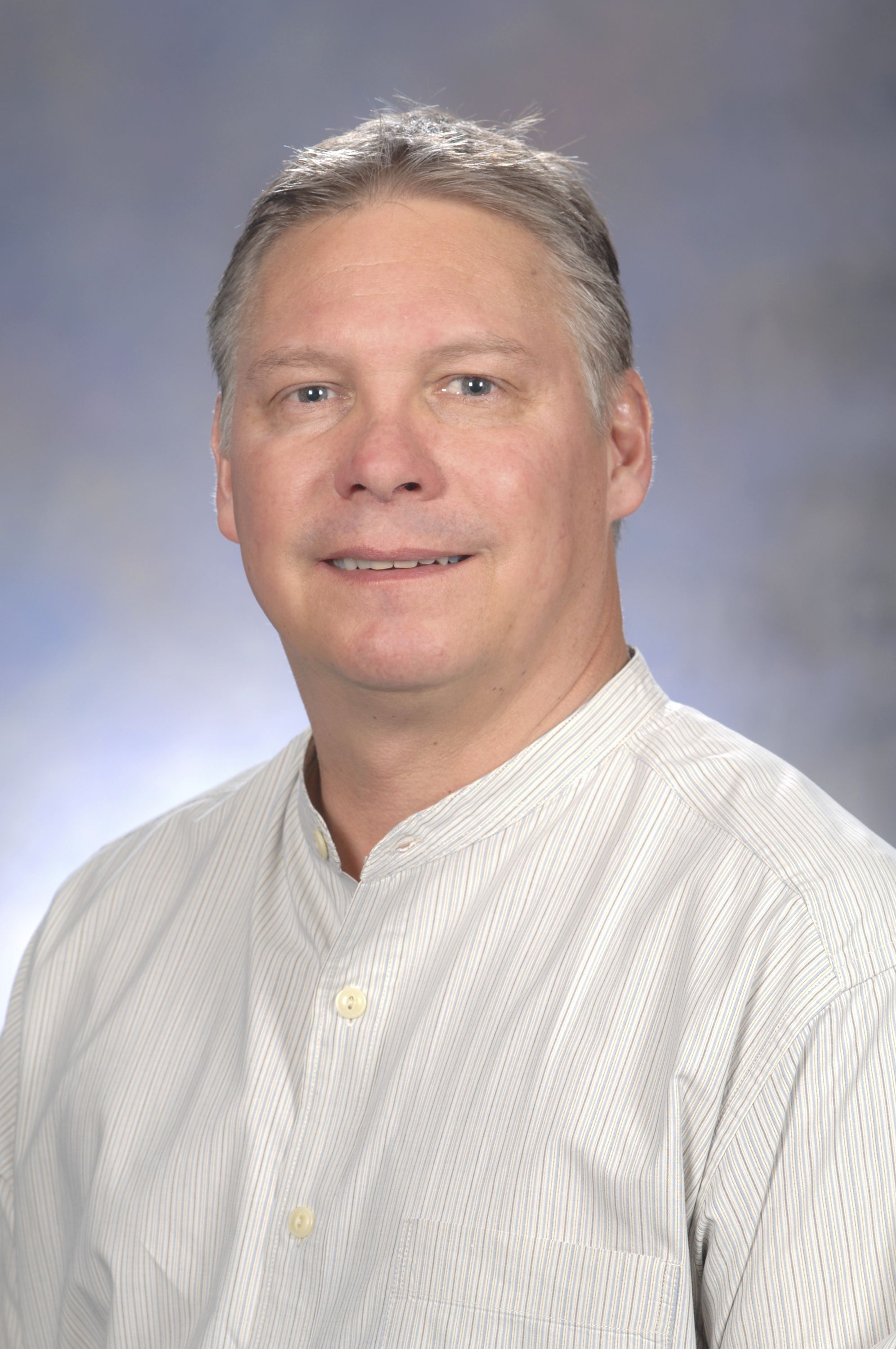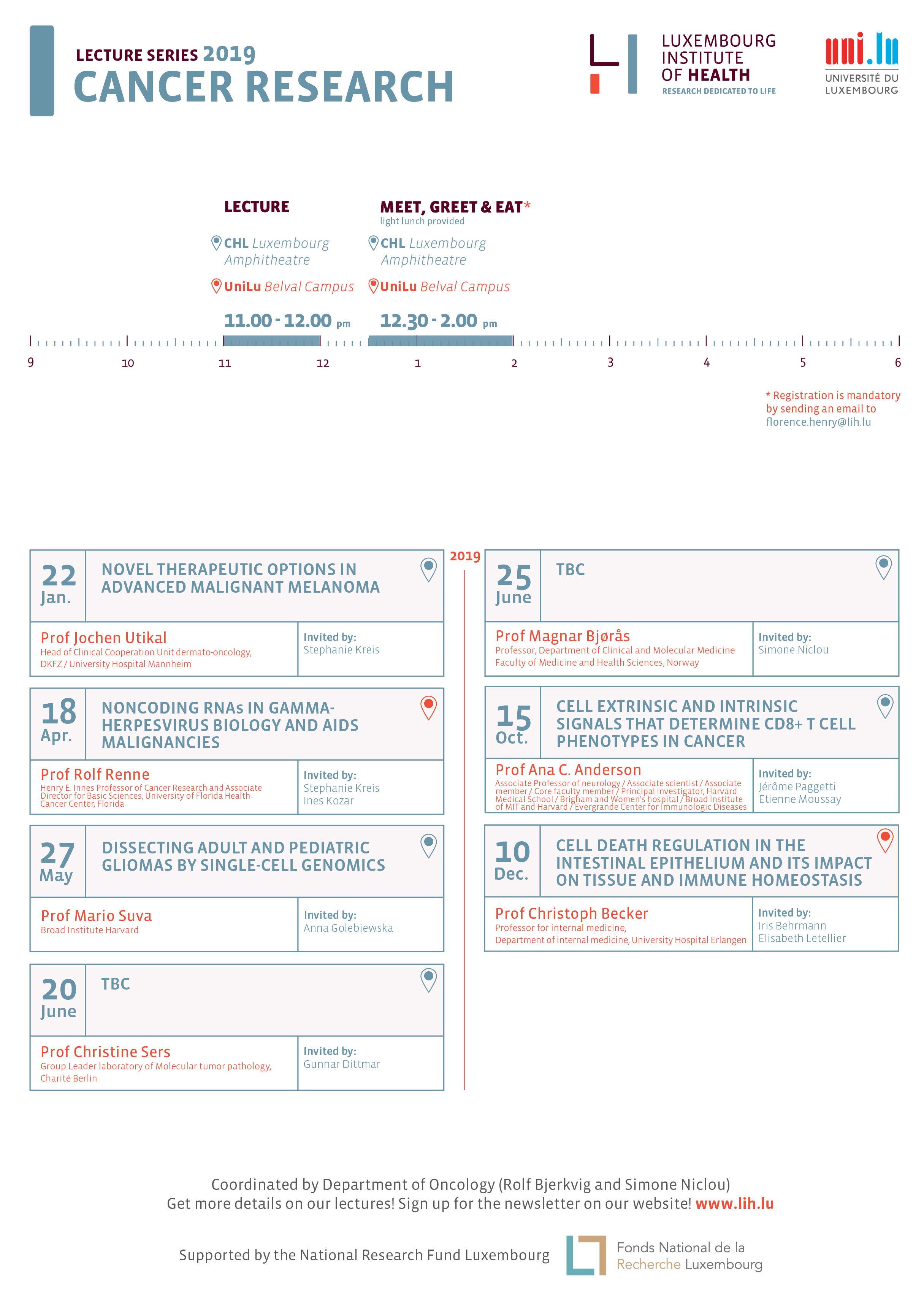Lecture Series Cancer Research - "NONCODING RNAS IN GAMMA-HERPESVIRUS BIOLOGY AND AIDS MALIGNANCIES"- Prof Rolf Renne
18/04/2019 10:00 to 18/04/2019 11:00 (Europe/Luxembourg)
Belvaux,
Luxembourg
Speaker
Prof Rolf Renne is Henry E. Innes Professor of Cancer Research and Associate Director for Basic Sciences, University of Florida Health Cancer Center, Florida.
Abstract
Kaposi’s sarcoma-associated herpesvirus (KSHV) is causative agent of KS and two lymphoproliferative diseases, primary effusion lymphoma and Multicentric Castleman’s disease. Like all herpesviruses, KSHV has a latent and lytic life cycle and viral latency is associated with tumorigenesis in immunocompromised patients. During latency, gene expression is restricted to one region of the genome, which encodes 4 viral proteins and 12 microRNA (miRNAs) genes that were co-discovered in our laboratory in 2005. Since, one major focus is on identifying host and/or viral genes that are regulated by viral miRNAs and that contribute to viral pathogenesis and tumorigenesis. In addition to computational prediction and reporter based studies, we employ ribonomics methods like high-throughput sequencing of RNA isolated by cross-linking immunoprecipitation (HITSCLIP) and, more recently, cross-linking ligation and sequencing of hybrids (CLASH) to identify genome-wide miRNA targetomes in cells of lymphoid and endothelial origin. This work has discovered a number of pathways that are de-regulated by viral miRNAs in KS tumor cells. Surprisingly, these studies also revealed that a larger number of host cellular long noncoding RNAs are targeted and sometimes degraded by viral miRNAs in Ago-dependent fashion. The interaction of miRNAs and lncRNAs is not only a viral phenomenon, but also has been demonstrated for thousands of host lncRNAs that are targeted by host miRNAs. Given the diverse role of lncRNAs in a variety of molecular mechanisms like splicing and epigenetic control of transcription, miRNA/lncRNA interactions and regulation present a novel paradigm of gene expression in mammalian cells. Data on some biological roles of these novel interactions will also be discussed. Finally, recent deep sequencing approaches have revealed that herpesvirus genomes, like their host counterparts, give rise to many new transcripts that can be classified as lncRNAs, including a number of circular RNAs that we have recently discovered in KSHV, Epstein-Barr Virus, and a murine relative, MHV-68.
About the Lecture & Workshop series - cancer research
The LIH lecture and workshops series in Cancer Research, supported by the FNR and jointly organized with the University of Luxembourg, are gathering internationally recognised speakers to address topics around Cancer Research during 2019-2020. Please find here the current programme for 2019.
These lectures will be followed by a workshop especially dedicated to early-stage researchers.
Attendance to the lecture and workshop are free of charge. Should you be interested in registering for the workshop, please feel free to do so by sending us an email.


